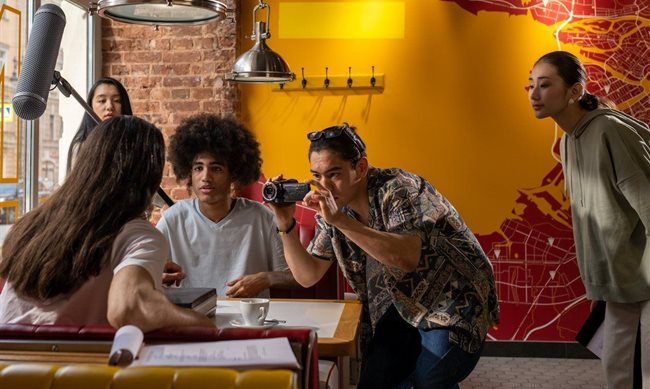South Africa's film production sector has been hit hard by Covid-19, but with much focus on boosting the national vaccination rollout's momentum - a declaration that the country has passed the 3rd wave and the recent announcement of the move to Lockdown Level 1 - there is hope that the film production sector will start to show signs of recovery.
Kathleen Davis of GIB’s Film & Entertainment division says adequate production cover is essential for content such as films, TV series, TV commercials, documentaries, music videos, education films, corporate programmes, or theatrical productions.
“Film productions present a range of potential loss and exposure during the production period, and it is a fairly complex and interlinked issue where production houses need to be aware of all the elements impact on insurance and adequate cover,” she says.
Behind the scenes, filmmakers must strive to keep actors, stunt performers, crew and all the extras safe, while providing the illusion of danger on the screen. Explosions and dramatic stunts in exotic locations keep audiences off the edge of their seats and while the scenes may be fictional, the risk to the crew remains real. Davis also says without cover, producers cannot get the completion bond or guarantee the financiers require to lend to productions.
Apart from the financial guarantees, a variety of exposures may need to be addressed to avoid unnecessary risks. With proper precautions, many of the risks are insurable, although cover remains subject to underwriter’s conditions, terms and exclusions.
GIB has seen instances of water pipe bursts on location, resulting in extensive damage to the set, props or wardrobe; a freak storm washing away the entrance to a location, injury to a director during filming or to members of the stunt crew.
Davis says an experienced broker should be able to provide the required knowledge and insights to help protect the crew, cast, performers and equipment alike.
“This is most certainly no one-size-fits-all and there cannot be a cookie-cutter approach to film production insurance as every production is unique. We examine all aspects of each individual production to bring together multiple lines of coverage which reflect the specific client needs across the whole value chain, be it from production to prize indemnity to events to sports. It’s about understanding the full film and entertainment spectrum and anticipating and discovering gaps in cover to help shield against loss.”
Covid-19 and the film industry
Davis says the big question now relates to cover for communicable diseases, specifically Covid-19 and its mutations.
“Sadly, many productions are struggling. Budgets went up as producers had to add safety measures on set, re-write scripts to reduce infection rates (especially for plots with romance or fight scenes) and revise production schedules to manage the crew numbers on set.
South African production houses cannot rely on government-backed Covid-19 insurance schemes like their counterparts in the UK, Australia, or Germany where the state acts as an “insurer” of last resort, pledging to re-imburse productions affected financially by Covid-19 induced losses. As a result, many projects simply collapse unless the production house explore out-of-the-box solutions or have financiers who are willing to take on the risk.”
While regrettably there is no Covid-19 cover, this is something the film sector will learn to live with, as will so many other sectors and industries. With strict safety protocols in place, productions will continue and although they cannot be insured for cancellations because of Covid-19 on a film shoot, sufficient cover for other production delays should give all producers peace-of-mind,” Davis concludes.








































